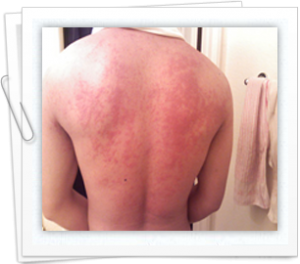Online CPR Certification Blog
There is an allergy drug that can help MS patients
Date: November 22nd, 2014
 The tests for the over the counter drug for MS patients
The tests for the over the counter drug for MS patients
There was a planned test of an OTC drug that can possibly save people from the disability of MS or multiple sclerosis sufferers. The post about the test got a lot of attention from the people, since the drug name wasn’t revealed then. Now the author went live and gave some details about the test that was published, making the drug known outside of its shell. The drug is named clemastine, which is the active component of an over the counter drug known as TAvist.
This drug was said to be high while the screening is ongoing and it was made to know the compounds that may promote oligodendrocyte driven myelinating activity. It is the absence in this activity in multiple sclerosis that is said to leave the fibers of the nerves stripped from the myelin sheaths that may lead to axonal damage and lack of nerve function, which may be adequately clinical disability.
How modest disability affects MS patients
People with worsening and remitting the multiple sclerosis case with least to modest disability are now being enlisted for the study, with participating target or around 50. This trial has gone over the design with patients getting neither placebo or clemastine drugs for three months nor then the others for two months only. The principal result measured the fatigue level, myelin water, the amount of magnetization transfer ratios; the EDSS score progression and others. The result may come out September 2014.
Is fatigue prominent in MS patients while using Clemastine?
As part of the clinical test, is it just right that fatigue may be considered as a safe point along as a possible effect in people with allergies, the pill may cause fatigue. It will also focus on people with relapsing and remitting multiple sclerosis more than those with first and secondary progressive multiple sclerosis. However, if you are suffering from Multiple Sclerosis and you are thinking about asking your doctor about Clemastine, you should know that more than the high throughput screen result in cell culture assay, there is no iota of proof that this drug has provided benefit in patients with multiple sclerosis. More so, if Clemastine does not boost remyelination, it will just make the fatigue worst and more so, it will just increase some usual clinical complaint in multiple sclerosis.
With this, it may be determined that Clemastine can truly help in the remyelination, but it can just worsen your condition, especially when it comes to fatigue, which is the prime complaint of people with MS. Though there were studies about the ANA presentation done in October, one of the reasons for maybe the only shot given at a test regardless if Clemastine doesn’t have a remyellinating effects in humans, a negative result may mean there will be no funds for a second try.
